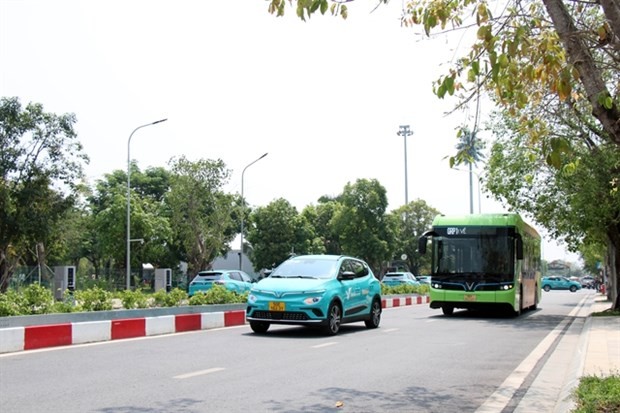
Vietnam’s ride-hailing market value is estimated at US$880 million in 2024 and expected to reach US$21.6 billion by 2029, growing at a compound annual growth rate of 19.5 percent during the forecast period, according to a recent report by India-based market research firm Mordor Intelligence.
With Vietnam’s rapidly growing urban population, the lack of public transport options, and increasing traffic congestion, the demand for private modes of transportation has gone up in recent years.
Consumers’ increasing preference toward availing private transportation for traveling purposes owing to the rising need for convenience in personal mobility and the growing number of tourists in Vietnam are major determinants for the growth of the ride-hailing market in Vietnam, the report wrote.
The rise in travel and tourism and the emergence of a young and tech-savvy population have further fuelled the adoption of ride-hailing services.
Passenger cars will continue to be the largest segment because they offer a comfortable and personalized mode of transportation, catering to the preferences of Vietnamese consumers led by the growing urban population and increasing disposable incomes.
The growing urban population and increasing disposable incomes have led to a rise in demand for convenient transportation options, particularly among urban commuters and young professionals.
Citing statistics that Vietnam’s internet coverage reached nearly 80 percent in 2023, the increasing penetration of smartphones and mobile apps aids consumers in accessing ride-hailing services and booking passenger cars on the go.
The report found that Ho Chi Minh City was the largest market for ride-hailing in Vietnam.
The Vietnamese Government is also encouraging the adoption of electric vehicles, which is a pivotal measure to combat transport challenges.
The government also aims to reduce greenhouse gas emissions, alleviate traffic congestion, and improve overall urban living conditions.
These efforts will create a conducive environment for expanding ride-hailing services in the city, the report said.
Xanh SM, the first-ever totally electric taxi company in Vietnam, has been aggressively expanding its market foothold through its strong partnership growth with several taxi firms across the country including Lado Taxi, Son Nam, Thanh Ha Transport, ASV Airport Taxi, En Vang and Taxi Xanh Sapa.
According to Mordor Intelligence, the Vietnamese ride-hailing market is moderately consolidated, with players like Grab Holdings, Xanh SM, Be Group, Go-Viet and FastGo.
Xanh SM, Grab and Gojek are also emerging as dominant players in the digital side of Vietnam’s ride-hailing market.
























